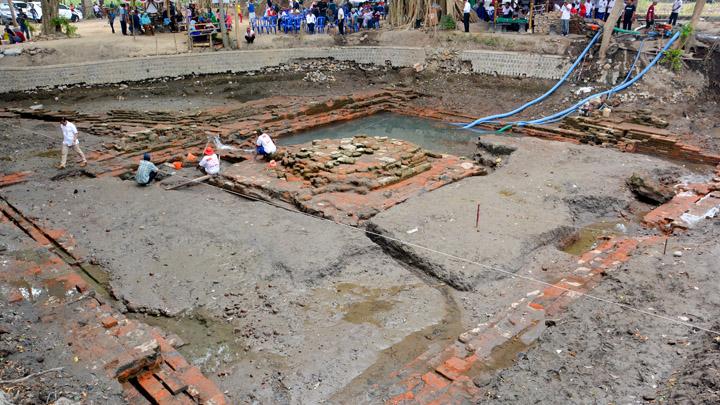
TEMPO.CO, Jakarta - After the East Timorese referendum in 1999, a number of refugees resettled in the Belu Regency. A non-profit organization and local activists have developed pre-schools in the regency’s resettlement areas.
IN front of a small blue and green building, children formed a circle and began to sing, following their teachers’ instructions. When the song ended, the children stood in two neat lines at the entrance of the Bundaran Early Childhood Education School (PAUD) in Tohe village, East Nusa Tenggara.
One of the teachers, Rofina Dos Santos, 22, inspected the nails of a girl standing in line. "Good, your hands are clean," she said. The little pre-schooler then entered the classroom, jumping from one colored number on the floor to the next. She called out each number out loud, from one to six, as she hopped on them.
A total of 17 children sat on the floor in the five-by-seven-meter room. Toys were stacked neatly on one side, and the wall was covered with educational posters. "Can anyone tell me what day it is today?" asked Fina, short for Rofina. One of the children raised her hand and answered correctly. The teacher proceeded to ask the date, month and year. It was July 24.
"I’ve been a PAUD teacher since 2013," said Fina, who had no formal instruction in early childhood education. The young woman wanted to help the children in her village, though she was armed with only a high school diploma. As it turned out, teaching four and five-year-olds was not easy. Fina finds it difficult to structure their activities.
"Those who are bored would simply go home during break, because they live nearby," she said, laughing.
Fortunately for Fina, in 2014 she received training from Save the Children, a non-profit organization that focuses on children’s rights. The training program, held in Atambua, Belu’s capital, covered the basics of early childhood education, including drafting semester programs, planning daily activities, first aid and hygiene.
Now Fina teaches according to the curriculum provided by the Belu Education Office and can find ways to be more creative when drafting lesson plans. Furthermore, the Bundaran PAUD now has toys at its disposal, including for outdoor activities, to support classroom activities.
The school currently has 51 students, including children who have just enrolled for the new school year. Fina feels that her class is getting too crowded, as the Bundaran PAUD accommodates children from seven hamlets in Tohe village. "I hope we’ll be able to expand the building and also add more toys for the children," she said.
The Bundaran PAUD was initiated by Armindo Henriquez and was opened in 2011. The 42-year-old was a refugee who fled East Timor in 1999 after the referendum. The majority of eligible voters had chosen independence from Indonesia, resulting in violent attacks by anti-independence militants against civilians.
"The situation was complicated. We didn’t want to die, so we had to leave," he said, adding that many families crossed the border to Indonesia. Many of them now live in Tohe.
Armindo coordinated the refugees during their resettlement. Later, his concern grew because most were illiterate. If the parents were uneducated, how would they be able to teach the next generation to think critically, he mused.
Read more inspiring Outreach stories in Tempo English Weekly Magazine























